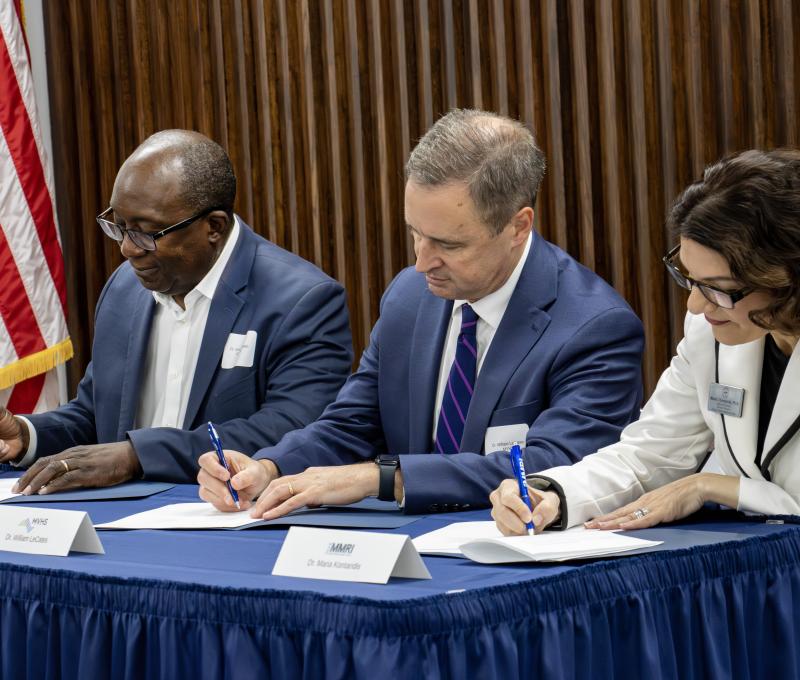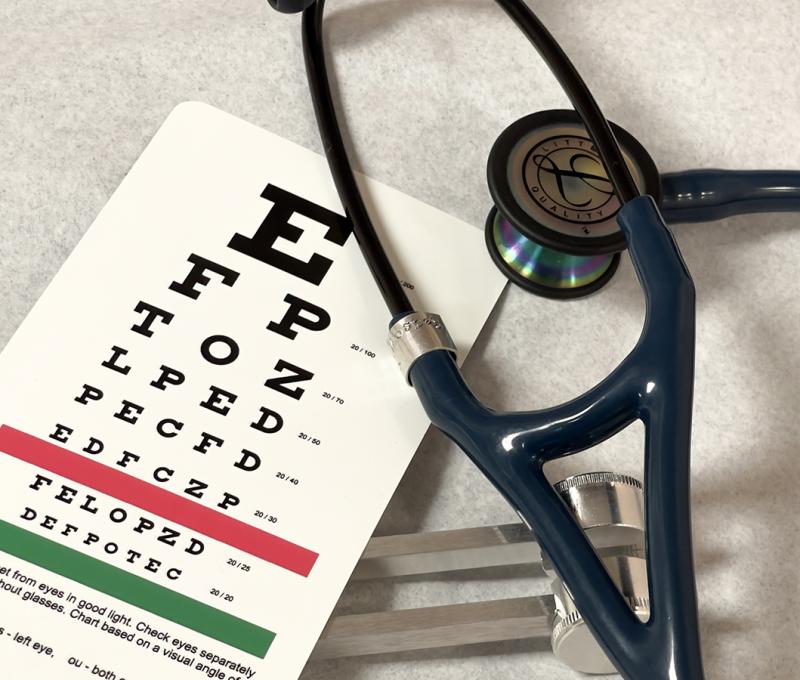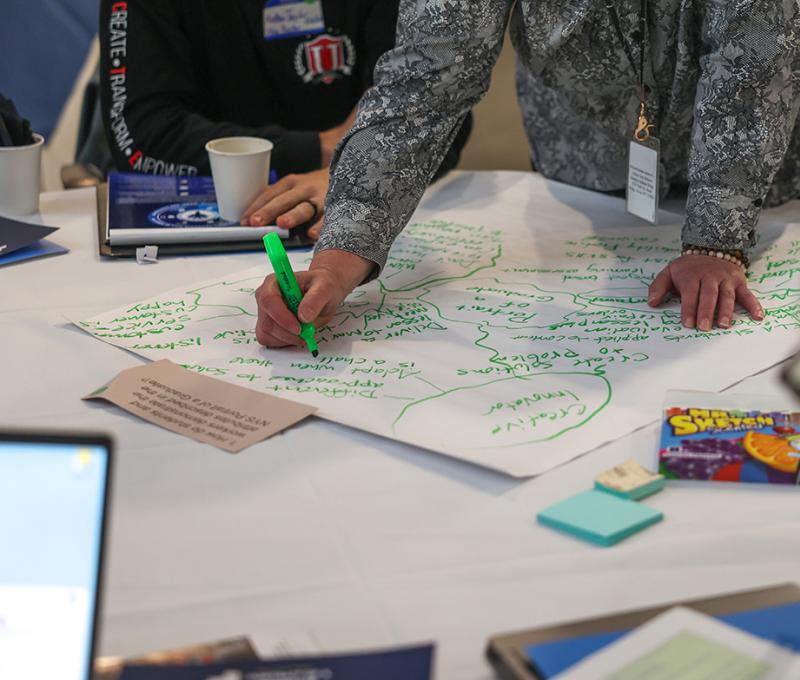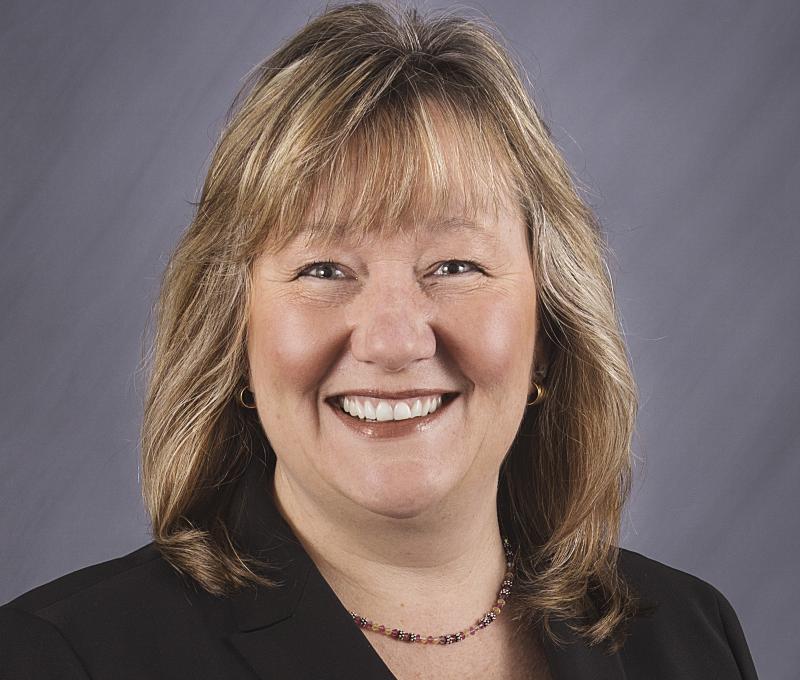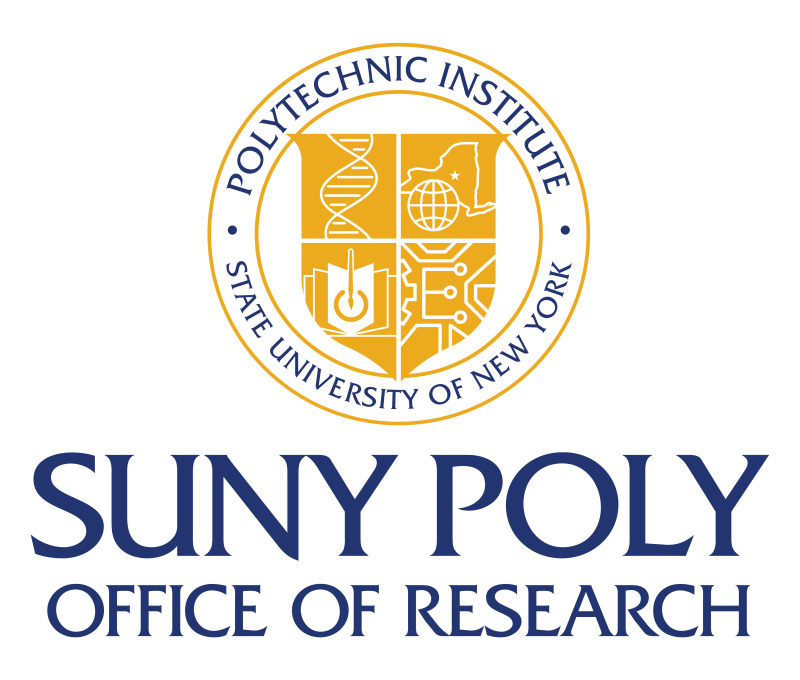News Release: SUNY Polytechnic Institute, Ciencia, Inc., NYS Department of Health, Wadsworth Center Announce 30-Minute COVID-19 Antibody Test

For Release: Immediate – September 28, 2020
Contact: Steve Ference, Director of University Communications | (518) 429-7742 | sference@sunypoly.edu
ALBANY, NY – SUNY Polytechnic Institute (SUNY Poly) announced that in partnership with Ciencia, Inc. and the New York State Department of Health, Wadsworth Center, a COVID-19 antibody test that takes only 30 minutes to provide results has been developed with support from a SUNY COVID-19 seed funding program.
This research, led by SUNY Poly Empire Innovation Professor of Nanobioscience Dr. Nate Cady, facilitates the detection of antibodies against multiple COVID antigens. The test reveals who has been infected previously as compared to those who have not been infected by COVID-19.
“This outstanding public-private, industry-academe partnership demonstrates how collaboration, and a shared sense of urgency and mission, can accelerate research to impact,” said Dr. Meera Sampath, Associate Vice Chancellor for Research. “Dr. Cady and the team worked tirelessly to get to these results. The innovative way by which they leveraged existing technologies and techniques to find a solution for a completely new problem is particularly commendable.”
Dr. Cady said, “We are proud to leverage this grant from SUNY and to work with our partners, including Ciencia, Inc. and the New York State Department of Health, Wadsworth Center, in order to bring this exciting technology forward. The antibody test that we have developed could help provide people peace of mind related to their COVID-19 status and potentially provide additional knowledge that can be instrumental for mitigating this pandemic.”
A key component of the test is that it can use dried blood spots, requiring only a small droplet of blood which can be obtained via a standard finger prick. Additionally, because dried blood spots remain stable, they can also be transported by mail without any refrigeration to a testing facility, should that be more efficient in any potential future use of the technology. Next steps include high throughput testing and further validation with additional samples, with the potential of such a system being developed for commercialization within approximately one year.
“The Wadsworth Center’s scientists were pleased to work with our partners at SUNY Polytechnic on developing this rapid antibody test,” said Wadsworth Center Director Dr. Jill Taylor. “Because the test detects antibodies against multiple COVID-19 antigens in less than an hour, it will help scientists tracking the pandemic get a clearer understanding of who has been infected throughout the world.”
“Dr. Cady and his collaborators have done much to address the need for high-quality serologic testing of COVID-19,” said Arturo Pilar, president of Ciencia, Inc. “We are pleased to provide an instrument platform that supports their important research. Our grating-coupled fluorescent plasmonics (GC-FP) instrumentation enhances fluorescent signals, allowing multiple antibodies to be measured rapidly, at a low cost, and only requiring trace amounts of reagents. Using GC-FP, Dr. Cady and his collaborators define each individual’s unique immune response after exposure to this terrible disease. Similar testing on other systems is labor intensive and very costly. Finger stick blood collection would be convenient, relatively painless, and might enable testing by mail. We look forward to their continued progress and are actively exploring commercial partnerships for further development.”
Details related to the research were published on medRxiv and titled, “Multiplexed Detection and Quantification of Human Antibody Response to COVID-19 Infection Using a Plasmon Enhanced Biosensor Platform”: https://www.medrxiv.org/content/10.1101/2020.09.02.20187070v2.
####################
About SUNY Polytechnic Institute (SUNY Poly)
SUNY Poly is New York’s globally recognized, high-tech educational ecosystem. SUNY Poly offers undergraduate and graduate degrees in the emerging disciplines of nanoscience and nanoengineering, as well as cutting-edge nanobioscience programs at its Albany campus, and undergraduate and graduate degrees in technology, including engineering, cybersecurity, computer science, and the engineering technologies; professional studies, including business, communication, and nursing; and arts and sciences, including natural sciences, mathematics, humanities, and social sciences at its Utica campus; thriving athletic, recreational, and cultural programs, events, and activities complement the campus experience. As the world’s most advanced, university-driven research enterprise, SUNY Poly boasts billions of dollars in high-tech investments and hundreds of corporate partners since its inception. For information visit www.sunypoly.edu.
About Ciencia, Inc.
Ciencia is a Connecticut-based research and development corporation with nearly three decades of experience translating innovations in basic physics into advanced solutions for our customers. Ciencia now offers refined instrumentation that uses state-of-the-art optical technologies to improve fluorescent signals, reducing cost and adding value to widely-used tools for biomedical research and clinical diagnostics. For information visit www.ciencia.com.



